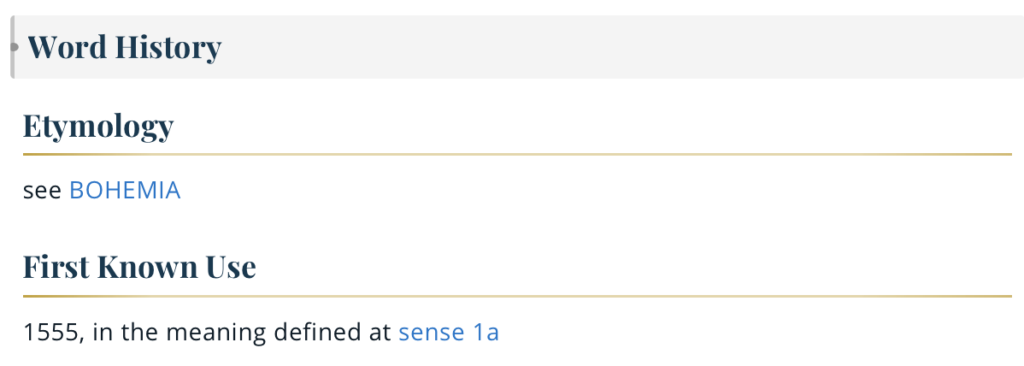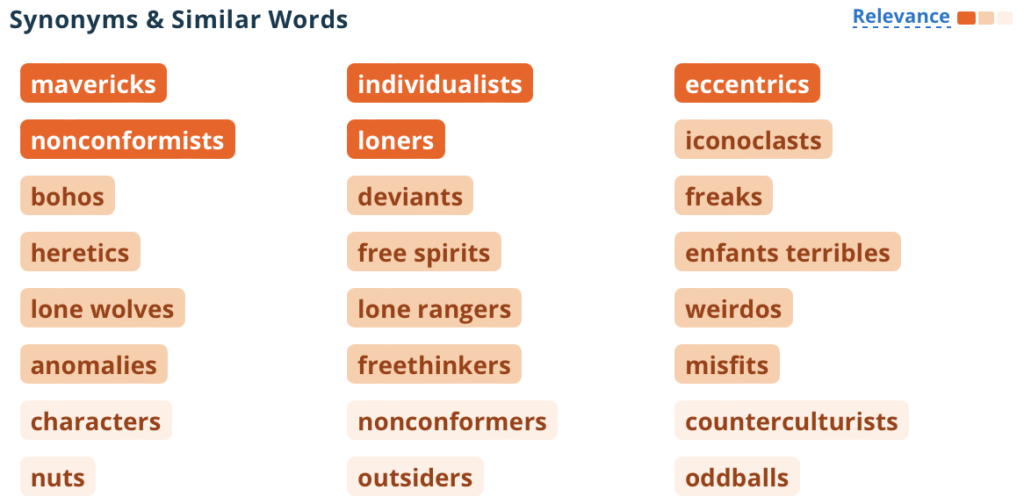“Bohemian” has taken on multiple meanings over time. For the purpose of disambiguation, see below for definitions, etymologies, and a timeline of historical source material.
* This website focuses on Czech-Americans, specifically the Congregation of Bohemian Freethinkers in Chicago (established 1870), and the legacy of Bohemian-born American freethinkers during the Golden Age of Freethought (~1875 to 1914) through WWII, and their descendants and cultural legacy.
Definitions
Merriam Webster Dictionary currently offers a few definitions and synonyms for “Bohemian” and an article discussing the word’s history.





Etymology
Etymology is the “history of the form of words and, by extension, the origin and evolution of their semantic meaning across time.”
Bohemian-Czech Sources
In 1415, in the Kingdom of Bohemian, Jan Hus was burned at the stake by Catholics, prompting the Bohemian Reformation. The Bohemian Brethren (first documented in 1650), refers to the Christian body originating in 1467, and which is the parent body of the modern Moravian Church. Throughout 1526-1918, the Bohemians resisted Hapsburg-Catholic oppression and forced-German-language. During the 1840s-1900s large numbers of Bohemians immigrated to the USA, primarily Chicago, New York, Cleveland, Nebraska, Texas, etc. Note that sources regarding Bohemian nationality/ethnicity, tended to use the word Bohemian prior 1918, but have since shifted towards Czech.
Romani Sources
There were many Roma people who spoke Bohemian/Czech, see also: Bohemian Romani, and the WWII Museum Articles: Fascination and Hatred, The Bavarian Precedent
The frequent use of the term Bohemian to describe Roma people, may be due to an 1843 opera called “The Bohemian Girl” by an Irish composer, Michael William Balfe, featuring a plot is loosely based on “La gitanilla”, by Spanish author Miguel de Cervantes.
French (artistic, literary, bohemian v. bourgeoisie) Sources
In the 1800s, bohemian also came to refer to those who live outside the conventions of ordinary society, typically as some sort of artist. This was a usage Thackeray picked up in “Vanity Fair” in 1848. The Online Etymology Dictionary quotes the Westminster Review from 1862: “A Bohemian is simply an artist or littérateur who, consciously or unconsciously, secedes from conventionality in life and in art.”
The poster children, though, for this sense of “Bohemian,” or “bohemian,” are the impoverished artists of Puccini‘s opera “La Bohème,” which premièred in 1896 but was set in the Latin Quarter of Paris in the 1840s.
The term was later more broadly applied to those who lived an eccentric, unusual lifestyle that was based on a love for the arts, the pursuit of pleasure, sexual freedom, and travel. A bohemian is a ‘citizen of the world’ to whom norms and traditions of bourgeois society seem frivolous, arbitrary, and hypocritical.”